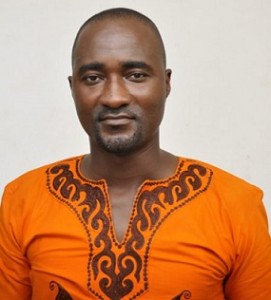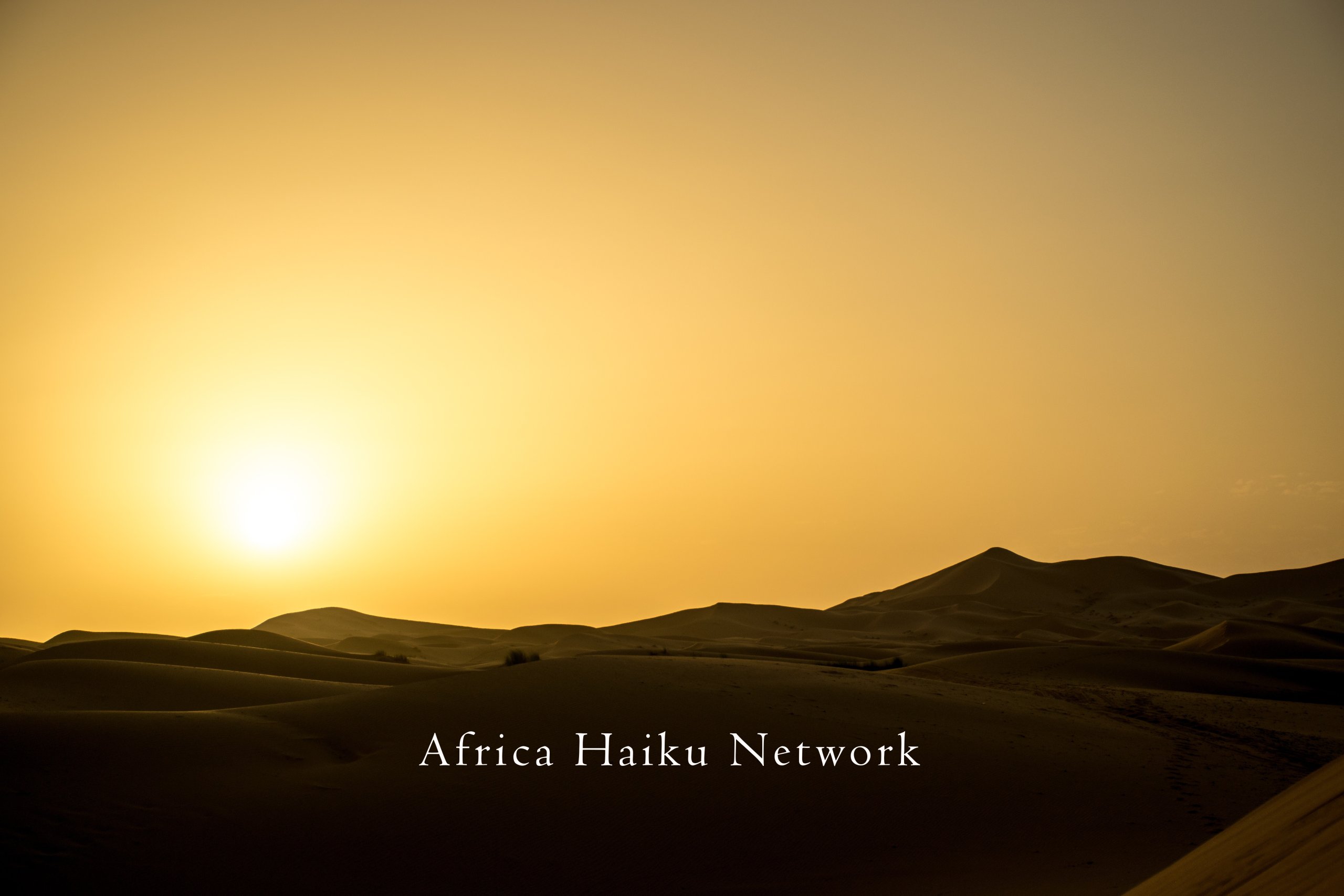For the last month Naviar published poems written by members of the Africa Haiku Network, a blossoming community of African haiku poets founded in 2015 which aims to promote the relatively new form of traditional Japanese poetry in the African continent. I asked a few questions to Adjei Agyei-Baah, co-founder of this ambitious project.

How did the Africa Haiku Network start?
It was founded in 2015 by two great minds namely Emmanuel Jessie Kalusian and Adjei Agyei-Baah who were brought together by online haiku activities. The network is poised with the task of taming the relatively new form of poetry in the African climate: by telling the African story, depicting sights and sounds through haiku. The network, amongst other lofty goals, teaches persons interested in poetry and secular poets across Africa the aesthetics of haiku usually at no cost. AHN is also a chief promoter of Afriku, an African form of haiku.
Just by reading your Mamba Journal, it's clear that there's a lot of interest in haiku poetry in West, Southern and North Africa, and the quality of the poems included is excellent. On your website you mention that haiku is a relatively new form of poetry in the African continent: can you briefly tell us how it started?
Concerning the entry of haiku into Africa, much credit would be given to Sono Uchida (a prominent Japanese haiku poet and diplomat in Senegal), who 30 years ago initiated a haiku contest in French language, which in those days was the only international haiku contest in the African continent. And afterward, also promoted haiku in Morocco (as an ambassador) among other places to which he was posted. And more of his exploits as one of the key forerunners in championing haiku in Africa can be read from my essay “A History Of African Haiku” available on the digital library of the Haiku Foundation.
It seems that one of the most inspiring topic in African haiku poetry is the harmattan. What inspires haiku writers about this particular season?
Harmattan in itself is not a season but an extremely dry dusty wind that blows from the Sahara toward the western coast of Africa, especially between November and March, and experienced as one of the effects of Africa’s Dry Season. And this part of the season can be compared to West’s Autumn or Fall characterized by excessive dryness with its resultant effect of trees shedding their leaves and rivers drying up. I may not be able to tell specifically what inspire my fellow African haijins to write a lot about this time of the season, but I for one am most fascinated by harmattan ability to leave nature bare and reveal things which were once hidden from the eyes. And since haiku is about little details that gives a bigger revelation, my curiosity is heighten at this point in time to explore and write more.
The African continent offers an incredible mix of cultures and religions, but by reading your magazine what I see is a group of poets from all around the continent sharing beautiful poems and inspiring others with their works. Do you see the Africa Haiku Network as a project that aims at breaking the boundaries and promoting a sense of unity between different cultures?
Yes. I think haiku can serve as a bridge to link all nations! We can share our own experience of nature and reality through this art medium. Hence my support of the campaign to make haiku as one of United Nation Intangible Cultural Heritage.
Can you tell us about AHN's future projects? How do you see AHN in five or ten years?
We have a lot things on our mind. In the meantime, we are currently offering free haiku lessons to young African poets interested in the art as a way promoting haiku in Africa, in addition to our already circulating free journal, The Mamba. In five or more years to come, we hope to have done much to convince academic institutions across Africa to embrace haiku as a new poetry form that need to be taught at the primary and high schools, as well as a researchable poetry genre in African universities. Finally, hope to establish a small publishing unit to help the young upcoming African haiku poets to get their works across to the world haiku community.
Africa Haiku Network:
https://africahaikunetwork.wordpress.com
https://www.facebook.com/AfricaHaiku
Authors who participated in the Haiku challenge:
Nana Fredua-Agyeman http://nanafreduagyeman.blogspot.co.uk
Jamil Dan'bala Umar https://twitter.com/Danbala
Kwaku Feni Adow http://livinghaikuanthology.com/poet-portfolios/400-a-poets/adow,-kwaku-feni.html
Ali Znaidi http://aliznaidi.blogspot.co.uk
Celestine Nudanu https://readinpleasure.wordpress.com
Picture by Red Morley Hewitt https://unsplash.com/@redvers

